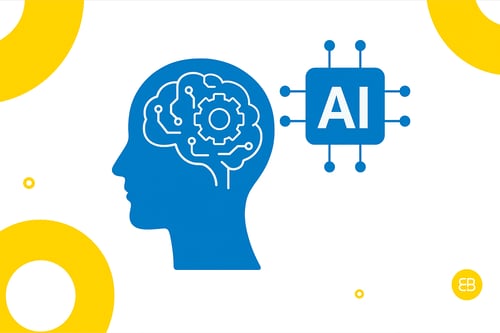Artificial Intelligence (AI): How It’s Shaping Our Future

Artificial Intelligence is software that mimics human intelligence. In an app, that can mean understanding natural language, spotting patterns a human would miss, or predicting the next best action for a user. Put simply, AI helps your product think, learn, and adapt on its own.
Why AI Matters
AI isn’t a buzzword; it is a growth engine.
-
Enhanced user experience – Personalised content, smarter recommendations, and “they-read-my-mind” search results drive retention.
-
Operational efficiency – Chatbots, smart routing, and automated data clean-ups cut labour costs and response times.
-
Better decisions, faster – Models digest millions of data points and surface insights a human analyst would need weeks to spot.
-
Effortless scale – Once trained, an AI model serves one user or one million without breaking a sweat.
-
Competitive moat – Early adopters lock in data advantages that latecomers struggle to replicate.
When to Use AI
AI shows up when you’re doing things like:
-
Creating chatbots or voice assistants to enhance user interactions.
-
Building hyper-personalisation based on in-app behaviour and preferences.
-
Automating tasks like support ticket management or fraud checks.
-
Strengthening security through anomaly detection or threat detection.
-
Exploring voice, text, or image recognition to offer hands-free experiences.
Real-World Example
In the meal-planning app, we trained an AI model on 50 000 recipes and user taste profiles. The platform now suggests weekly menus, predicts pantry shortages, and sends grocery reminders—lifting user engagement by 27 percent and cutting support queries in half.
Founder Insight
Small teams often assume AI is “enterprise-only” and prohibitively expensive. Today that’s simply untrue—managed services, pre-trained models, and pay-as-you-go APIs mean you can launch an AI proof of concept for the price of a few sprint tickets. Start narrow, measure impact, then scale.
Key Metrics & Concepts
A brief note first: pick the metric that mirrors your business goal—accuracy means little if response time kills the user experience.
| Concept | Why It Matters |
|---|---|
| Accuracy | Overall correctness of predictions |
| Precision / Recall | How relevant results are (precision) and how many true positives you catch (recall) |
| F1 Score | Balances precision and recall in one number |
| Training Time | Impacts iteration speed and cloud costs |
| Inference Time | Determines how snappy the user experience feels |
Tools & Technologies
-
TensorFlow – Google-backed, production-ready machine-learning library.
-
PyTorch – Flexible, developer-friendly deep-learning framework.
-
Google Cloud Vertex AI – Managed model training, tuning, and deployment.
-
Microsoft Azure AI – Vision, speech, language, and decision APIs in a single suite.
-
IBM Watson – Enterprise NLP, sentiment analysis, and conversational AI services.
What’s Next
Expect even sharper personalisation as AI models process data in real time on the device, not just the cloud. Ethical AI is also front-of-mind—transparency, bias mitigation, and explainability will become table stakes rather than nice-to-have badges.
Related Terms
Helpful Resources
Want to Turn Your Data Into a Competitive Advantage?
Curious how Artificial Intelligence could supercharge your app? Book a discovery call with our team and turn your data into a competitive advantage.